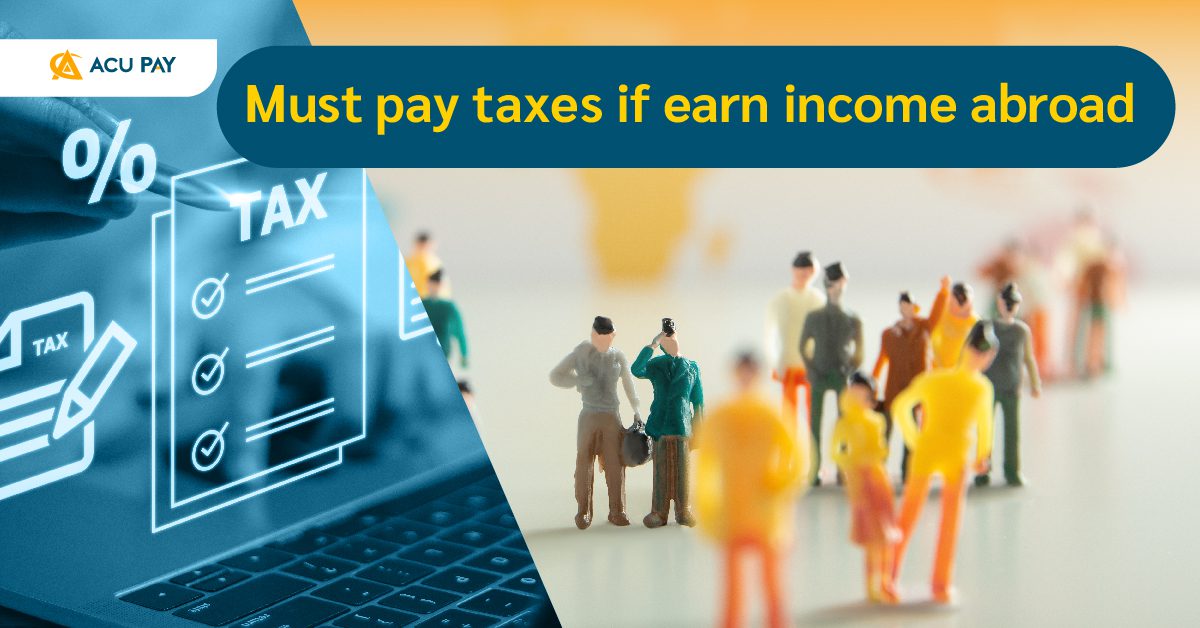

Anyone who are looking for job in abroad or earning income from foreign countries should get ready because the criterias because the taxation in 2024 on earning income from foreign countries has been changed
According to the Revenue Department order no. Por.161/2566, this is a guideline on income tax under Article 41 paragraph 2 of the Revenue Code. The reason why the Revenue Department has set this new guideline is because it wants foreign income earners to clearly pay taxes on personal income in Thailand for a more fair tax collection.
First of all, we should get to know the principle of taxation in Thailand. For taxation in Thailand, there are two criteria considered: “Source of income” and “Residence”:
In conclusion, the criteria for taxation on foreign income are if there is income “before” 2024, that person is not liable to pay taxes in Thailand, but if there is income from 2024 onwards, that person must check oneself with two questions:
If you check, it turns out you do not meet two of the questions meaning that you don’t have to pay foreign income taxes because you don’t meet the tax requirements; on the other hand, if you check and you do both of the questions meaning that you have to pay foreign income taxes.
Example 1:
During the taxable year 2023-2024, Mr. A lived in Thailand with an assessable income from interest on bank deposits abroad in the taxable year 2023 and an assessable income from the rental of condominiums overseas in the taxable year 2023. until the taxable year 2025, Mr. A brings income from both ways into Thailand.
Mr. A is responsible for paying foreign income tax only on the part of the rental of condominiums, since the assessable income takes place from January 1, 2024. The proceeds from deposit interest at foreign banks, Mr. A do not have to pay tax.
Example 2:
In the taxable year 2024, Mr. B had an assessable income from working abroad, and Mr. B stayed in Thailand for 180 days and brought foreign income into Thailand. In the taxable year 2024, Mr. B was responsible for paying taxes to Thailand because both conditions were met.
If Mr. B does not wish to pay taxes in Thailand in case of earning foreign income, Mr. B must comply with the following conditions:
However, if a person has already been taxed in the country of the income source and that country has a double taxation agreement with Thailand, the taxation can be used as a tax credit according to the criteria stipulated in the Double Tax Agreement.
The Double Tax Agreement is an agreement between the two countries that has been negotiated to solve the problem of double taxation on individual income tax, as well as establishing tax cooperation. At present, Thailand has entered into agreements with 61 countries around the world by taking paid taxes from the source country as tax credits to reduce this tax burden in Thailand.
For example, Creators who earn money from selling stickers must pay taxes in Japan (state of income). When they have already paid, consider whether the Double Tax Agreement stipulates that Thailand can levy a tax or not. If the Thai-Japanese Tax Agreement determines the nature of the right to be taxed in a state with sources of income, there will be no tax on Thailand again.
However, for countries that do not have the Double Tax Agreement with Thailand, we may have to pay taxes in both countries. It is important to consider whether we stayed in Thailand for 180 days that year and whether or not the income was brought in.
References from